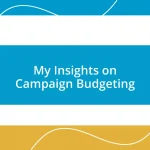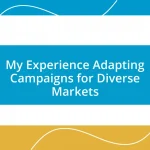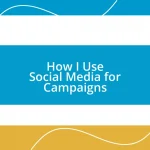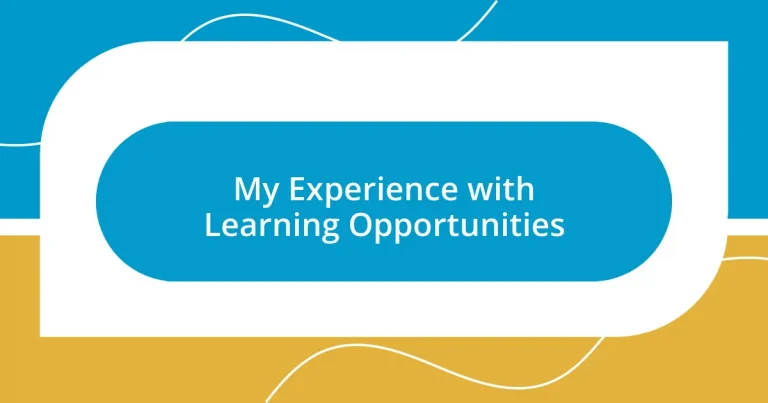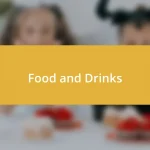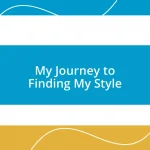Key takeaways:
- Learning opportunities are present in everyday experiences, challenges, and failures, offering valuable life lessons beyond formal education.
- Identifying personal learning goals through self-assessment helps align skills and knowledge with life ambitions for intentional growth.
- Exploring various learning methods, such as hands-on experiences and peer collaboration, can enhance engagement and understanding of concepts.
- Applying knowledge in real-world situations reinforces learning and boosts confidence, turning theoretical knowledge into practical skills.
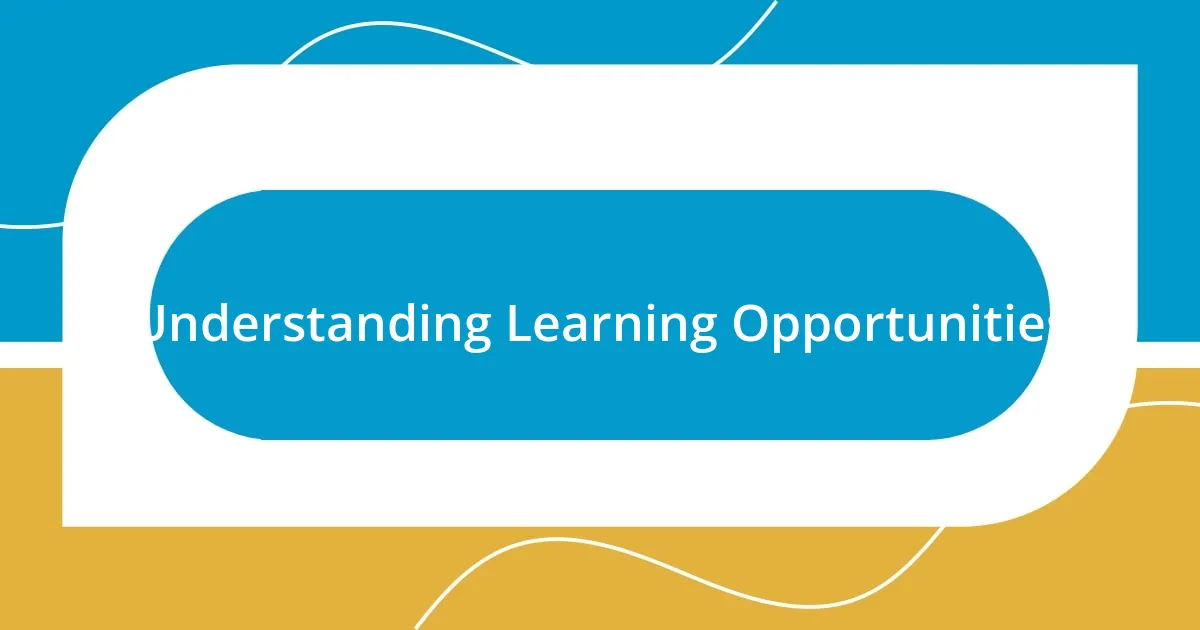
Understanding Learning Opportunities
Understanding learning opportunities is more than just recognizing formal education paths; it’s about finding growth in everyday moments. I remember when I took on a part-time job while attending school. Initially, I thought it would distract me from my studies, but it surprisingly became a crucible for developing crucial life skills that textbooks just couldn’t teach. Have you ever found unexpected lessons in your daily activities?
Each experience we encounter, from attending workshops to engaging in community service, offers a unique chance to learn. For example, I once volunteered for a local charity, and though I didn’t think I’d gain anything substantial, I ended up learning about empathy and teamwork in ways that I had never imagined. It’s fascinating to realize how varied experiences shape our understanding—how many learning opportunities have you overlooked in your life?
It’s also essential to recognize that learning opportunities don’t always come with a clear label. They can be disguised as challenges or even failures. I recall struggling with a project that didn’t go as planned; however, that setback forced me to adapt and seek help, which ultimately enhanced my problem-solving skills. When did you last turn a setback into a significant learning opportunity?
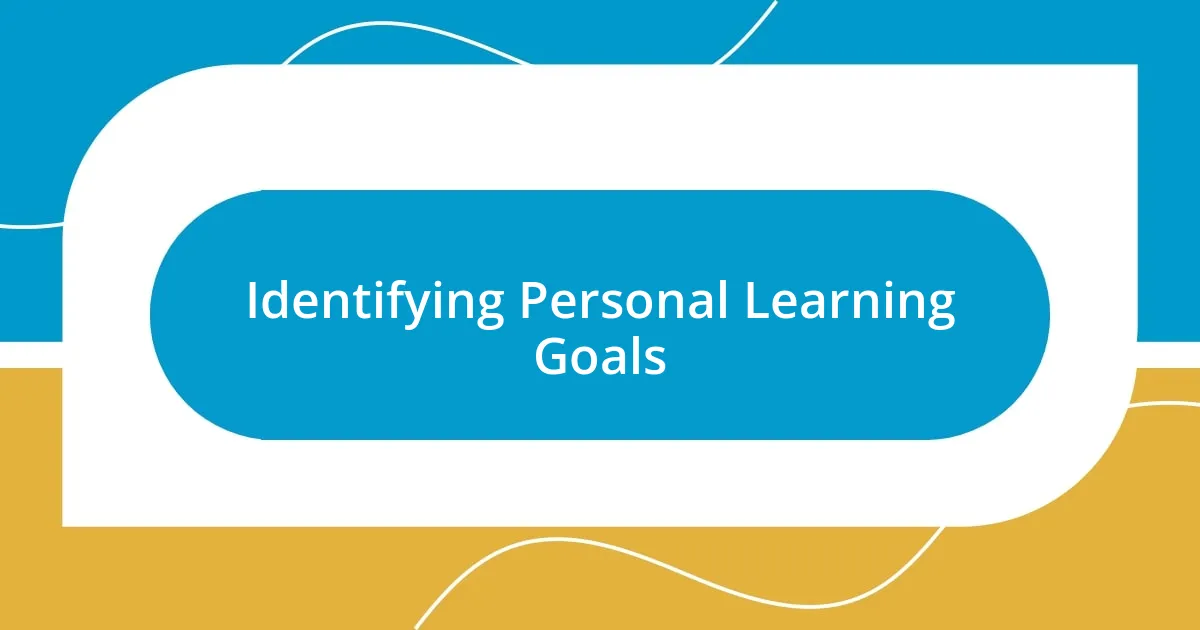
Identifying Personal Learning Goals
Identifying personal learning goals starts with an honest self-assessment. I remember sitting down with a notepad, reflecting on my strengths and weaknesses. What came out of that session was an eye-opening realization about areas I longed to explore further. It’s about asking yourself what skills or knowledge you genuinely want and how they align with your life ambitions.
To help pinpoint your personal learning goals, consider these guiding questions:
- What subjects ignite your passion?
- Are there specific skills that could enhance your career?
- Which experiences have previously taught you valuable lessons?
- How do you envision yourself growing in the next five years?
This simple yet purposeful approach sets the stage for intentional learning and growth. When I embraced this process, I discovered pathways I never anticipated, dramatically shifting my perspective on educational opportunities.
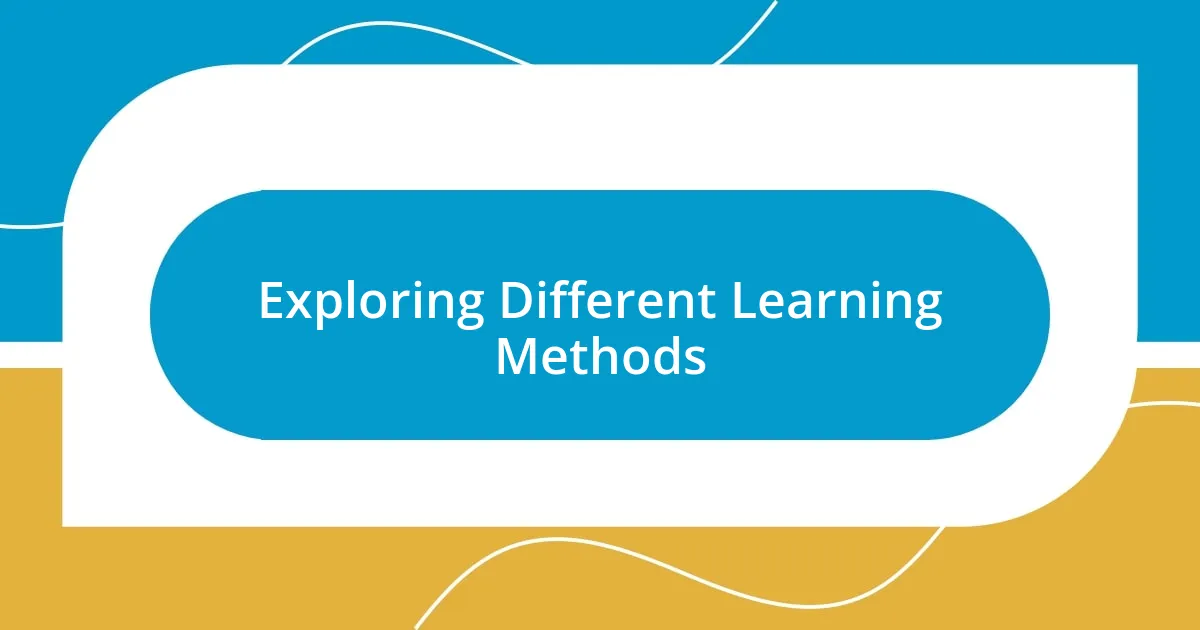
Exploring Different Learning Methods
Exploring different learning methods can significantly impact how we absorb and apply knowledge. Throughout my journey, I’ve found that hands-on experiences often resonate more deeply than traditional classroom learning. For instance, when I attended a coding boot camp, the real-time projects we tackled pushed me to think critically and creatively, exceeding the boundaries of theoretical learning. Isn’t it interesting how some concepts come alive only when we engage with them directly?
While reflecting on the various methods, I noticed that visual learning works wonders for many. When I first attempted to grasp complex theories through diagrams and mind maps, the information transformed from abstract ideas into concrete visuals. I still recall that “aha” moment when everything clicked during a workshop that utilized visual aids. Have you ever experienced a similar transformation through a specific learning method?
Furthermore, I can’t underestimate the power of peer learning. When I joined a study group, the collaborative discussions opened my eyes to diverse perspectives, enriching my understanding of the material. Sharing knowledge with others brought a level of engagement that solitary study couldn’t match. Have you tapped into the benefits of learning with others?
| Learning Method | Description |
|---|---|
| Hands-On Learning | Engagement through practical experience, often more impactful than theory alone. |
| Visual Learning | Utilizing images, diagrams, and mind maps to clarify complex concepts. |
| Peer Learning | Collaborative learning through discussion and shared perspectives. |
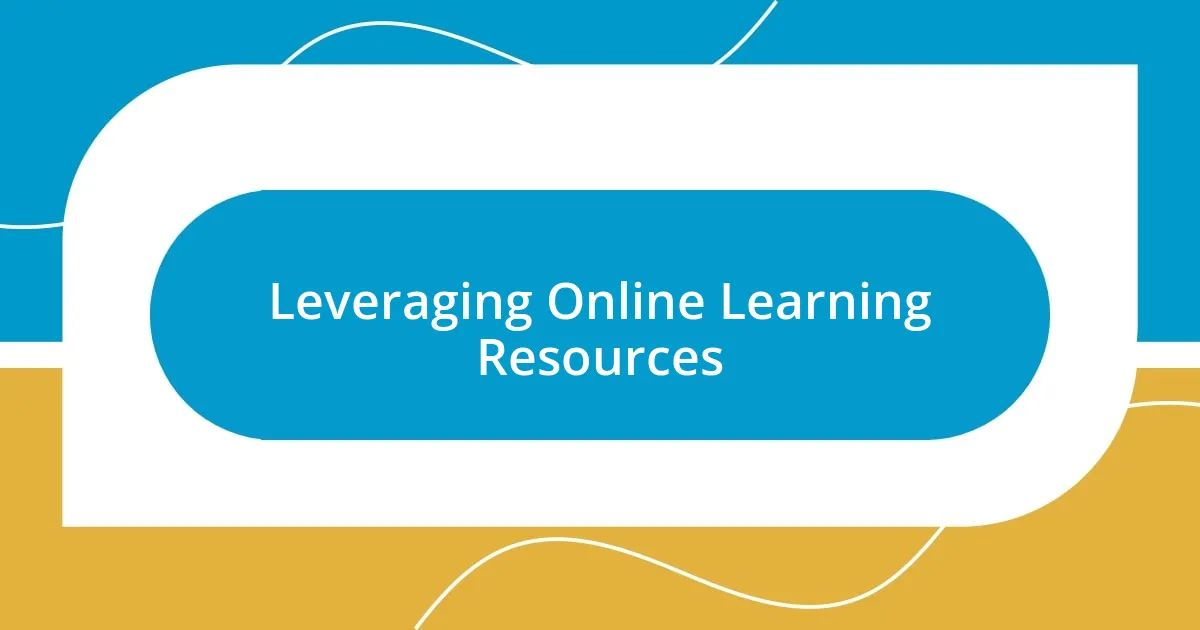
Leveraging Online Learning Resources
Online learning resources have completely transformed the way I approach learning, offering flexibility that traditional methods often lack. I recall diving into a massive open online course (MOOC) on data analytics, something I had previously brushed aside due to my busy schedule. However, the ability to study at my own pace made it not only achievable but enjoyable. Have you ever felt that sense of freedom when you realize you can learn anytime, anywhere?
I also value the community aspect of online platforms. I remember participating in discussion forums where members engaged thoughtfully over various topics. Sharing insights with people from different backgrounds not only broadened my perspective but created a support network that felt more like a learning family than a classroom. Did you know that interacting with others can enhance retention and understanding? It certainly did for me.
In addition, I’ve come to appreciate the wealth of resources available through platforms like YouTube and educational blogs. Often, when I felt stuck trying to grasp a difficult concept, a quick search led me to a video or article that broke it down with relatable examples. I vividly remember one particular video on statistics that made me laugh while embracing complex ideas, transforming frustration into eagerness. How impactful has a single resource been for you in overcoming learning challenges?
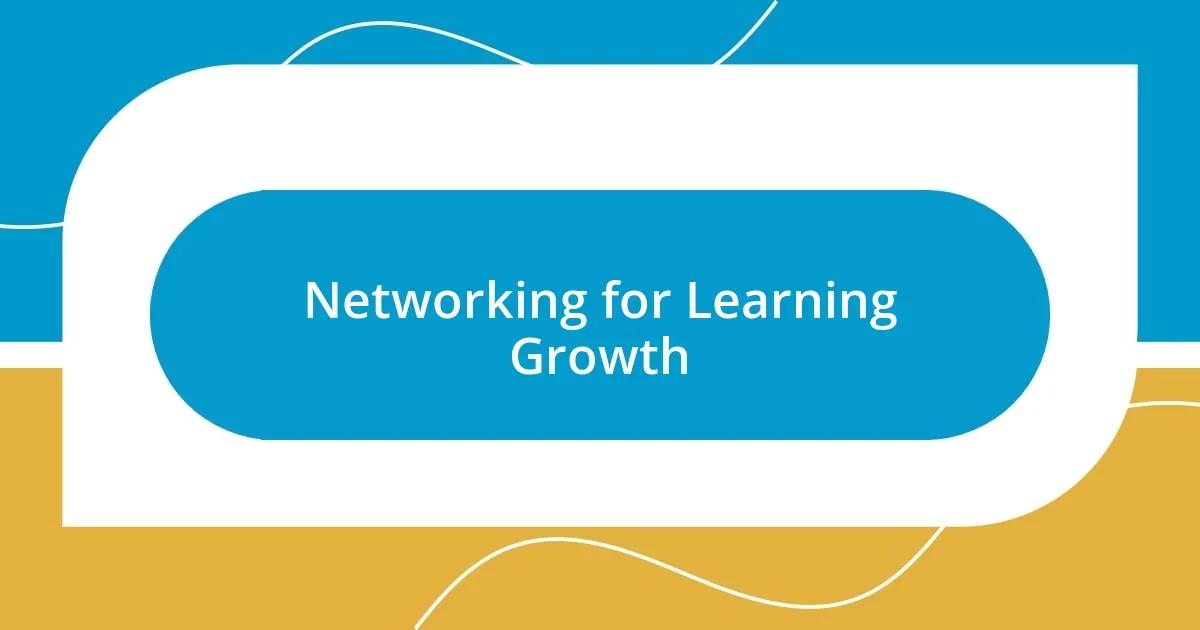
Networking for Learning Growth
Building connections through networking has been crucial for my learning journey. I vividly remember attending a local tech meetup where I met industry professionals who shared insights that textbooks simply couldn’t provide. Their stories about real-world applications not only inspired me but also clarified concepts I had previously struggled with. Have you ever felt that spark when a conversation just clicks?
One of my most significant networking experiences happened when I joined an online community focused on skill development. That sense of camaraderie was evident as members actively supported each other, exchanging tips and resources. I can still recall a time when someone took the extra effort to mentor me on a project—I gained not just knowledge, but the confidence to tackle new challenges. Isn’t it incredible how mentoring can shape our growth?
Furthermore, I’ve learned that networking isn’t only about gaining knowledge; it’s also about giving back. By sharing my insights during webinars, I developed my ideas further while also positively impacting others. This reciprocity nurtured connections that have persisted well beyond initial interactions. Have you considered how sharing your knowledge can create deeper learning bonds within your network?
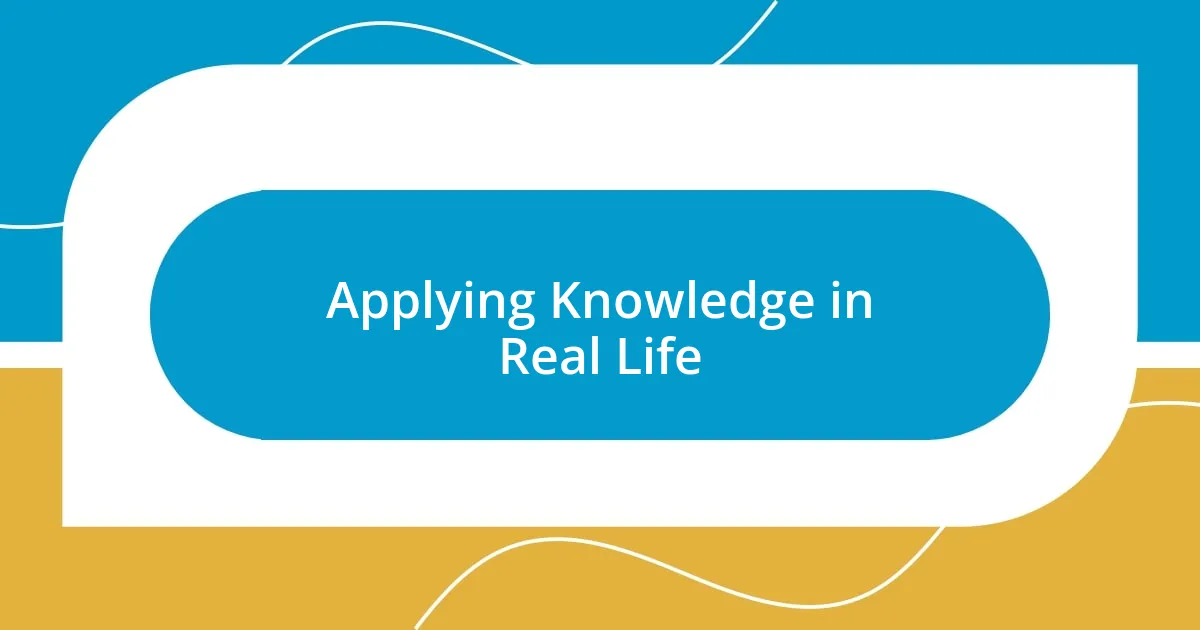
Applying Knowledge in Real Life
I remember the first time I applied my knowledge from a finance course to a real-life situation—creating a personal budget after a year of ups and downs. As I sat down, armed with spreadsheets and expense tracking methods, I felt a rush of empowerment. Have you experienced that lightbulb moment when theory becomes practice? For me, it was about more than just numbers; it was about taking control of my financial future.
In another instance, I decided to volunteer for a local organization that focused on community development. I quickly realized how the principles of project management I had learned translated into real-life applications. Coordinating events became a practical exercise in leadership and teamwork, allowing me to see the difference between theoretical frameworks and the nuances of working with diverse personalities. Have you ever seen a concept come alive through practical application? That realization redefined how I approached both learning and collaboration.
Embracing the mindset of experimentation has also been integral to applying knowledge. Instead of strictly adhering to a textbook strategy, I started conducting small experiments in my personal projects. One time, I tried a new marketing approach I had read about, which led to an unexpected surge in engagement. The feeling of success, mixed with the thrill of stepping outside my comfort zone, was both motivating and exhilarating. Have you found that taking risks can often lead to invaluable lessons? Each of these experiences has reinforced the idea that applying what we learn not only solidifies our understanding but opens doors to new opportunities and growth.
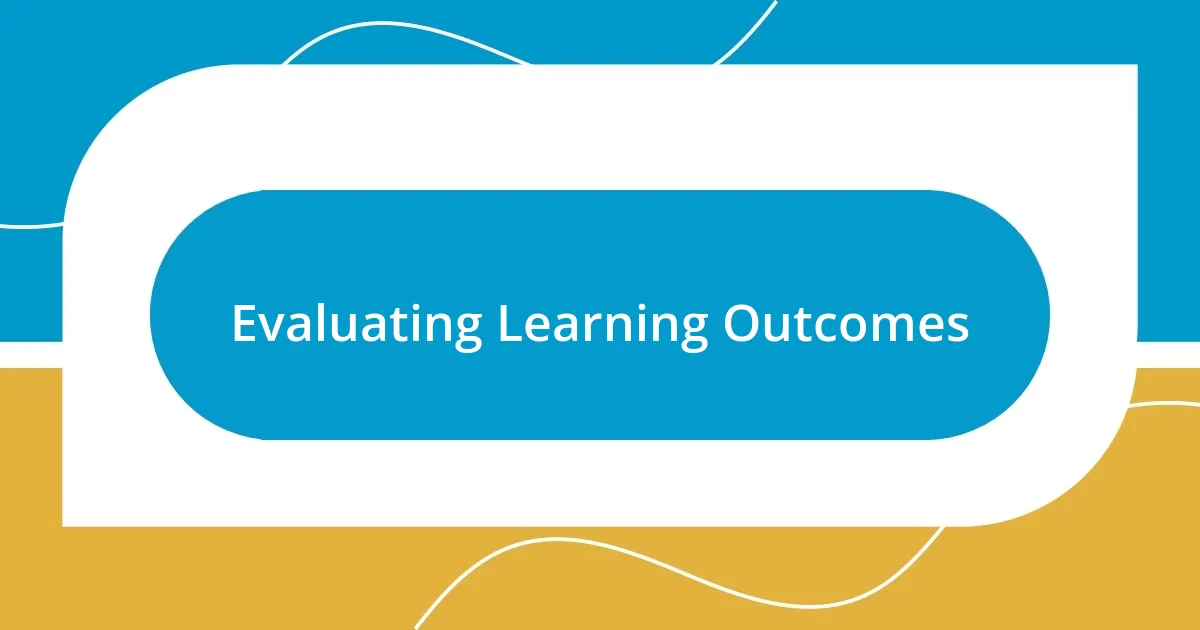
Evaluating Learning Outcomes
Evaluating learning outcomes is an essential step in understanding the effectiveness of any educational experience. I still remember a course I took where we had to assess our progress through self-reflection journals. Writing down my thoughts not only helped me pinpoint my strengths and weaknesses but also deepened my connection to the material. Have you ever found clarity through writing?
When I completed projects, I often sought feedback from peers and mentors to gauge how well I had absorbed the concepts. Their constructive criticism was pivotal; it highlighted areas for improvement I hadn’t considered before. It’s incredible how outside perspectives can shine light on our blind spots, isn’t it? This feedback loop helped me refine my skills and grasp the nuances of various subjects.
I also learned the value of pre- and post-assessments. For instance, in a workshop on public speaking, we measured our confidence and skills before and after the sessions. The growth I witnessed in myself, captured through those metrics, brought an excitement that fueled my desire to keep learning. Have you measured your progress and felt that sense of achievement? There’s nothing quite like seeing tangible results to motivate further exploration.

